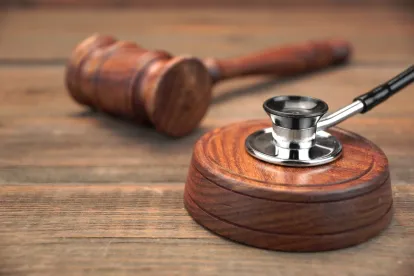Since the onset of the COVID-19 pandemic, one question that has surely raced through the minds of many employers is, “If one of my workers gets sick from COVID-19, can I be sued?”
This author’s longstanding view on lawsuits is that in America in the year 2020, on any given day, anyone can be sued by anyone else for any reason. Therefore, the better question to ask is, “If I am sued, can I defend the lawsuit quickly, cheaply and successfully?”
As we have written previously, workers’ compensation, which is a creature of state law, is designed to be the sole and exclusive remedy for all work-related injuries, illness and disease. The original intent of workers’ compensation systems was that an injured worker would receive partial wage-loss replacement and 100% of medical costs in exchange for giving up the right to sue the employer in a court of law. In addition, workers’ compensation costs to employers can easily be covered by insurance.
This concept of an employee being prevented from suing for workplace injury and disease is known as workers’ compensation exclusivity. In other words, workers’ compensation becomes the only remedy for the injured worker. This immunity from lawsuits also extends to the surviving family members of a worker who died on the job.
Under established workers’ compensation laws, most states have created very narrow exceptions to the concept of workers’ comp exclusivity. Generally, these exceptions require the injured worker or their survivors to show the employer acted in a grossly negligent fashion or with specific intent to harm the employee. Therefore, when COVID-19 hit and employers asked, “Can I be sued?” conventional wisdom held that they should be able to invoke the defense of workers’ compensation exclusivity to defeat any COVID-19-related lawsuits brought by an employee or their survivors. In addition, whether it be through a workers’ compensation claim or a lawsuit in court, the worker or the family would have to prove they actually caught the disease in the workplace.
Not to be deterred by 100 years of statutes and case law that seek to block such lawsuits, when COVID-19 hit and workers became sick and even died, creative plaintiffs’ lawyers looked for other ways to get around the workers’ compensation exclusivity defense. Some appear to have found their ticket to a lawsuit in a longstanding legal theory known as the tort of nuisance. The law of nuisance has long existed under common law and, in fact, some states have passed specific anti-nuisance statutes. Again, this area of the law varies from state to state.
There are both public and private nuisances. For example, the California Civil Code, Section 3480, defines “a public nuisance [as] one which affects at the same time an entire community or neighborhood, or any considerable number of persons, although the extent of the annoyance or damage inflicted upon individuals may be unequal.” Alleging that a company failed to take reasonable actions to stem the spread of COVID-19 and, as a result, workers, their families and potentially the community at large (through the exposure to customers) became sick, is one way to bring a nuisance lawsuit against a target employer resulting from COVID-19.
Employers who face a nuisance lawsuit have some good news and bad news. The good news is that generally individual employees, family members and customers cannot receive monetary damages when bringing such claims. The bad news is that preliminary injunctive relief is available, which normally takes the form of the judge ordering the entire business to shut down early in the lawsuit, as a precautionary measure just in case the plaintiffs are correct in alleging the business poses harm to a group of people or the community at large. The consequences of such a temporary restraining order, forcing the business to shut down, could be devastating to a business, even if the company ultimately wins, months or years later, when the main lawsuit concludes. Again, depending on the law of a particular state, attorneys’ fees to the plaintiffs and other harsh fines may also be available.
Given the serious consequences to any business that is hit with a nuisance lawsuit, here are some practical considerations for employers:
-
Stay abreast of the latest protocols designed to prevent the spread of COVID-19 in the workplace and to customers. This requires regularly checking with the Centers for Disease Control website as well as those of your state and local health authorities.
-
Provide your employees with ample personal protective equipment and ensure enhanced sanitation protocols are in place and are always followed.
-
Follow the applicable guidance and make sure your employees and customers follow it as well.For example, a retail business that is under a legal order to ensure all customers wear masks, but does not enforce that requirement, opens itself up to claims that it caused community spread and is thus a public nuisance.
-
A few states have already enacted laws that limit liability for claims by employees and others relating to COVID-19 exposure. More states as well as the U.S. Congress are considering passing such limits on liability as well.
Employers who don’t want to be a “nuisance” need to stay up-to-date and in compliance with health and safety protocols and also stay tuned to further legal developments.




 />i
/>i

